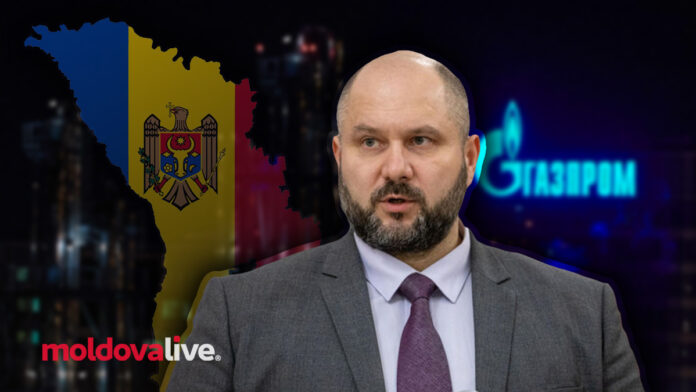The contract between Moldovagaz and Gazprom will expire in 2026, raising concerns about a potential gas shortage in the Transnistrian region. Energy Minister Victor Parlicov stated that the Republic of Moldova is closely monitoring the progress of the contract implementation in the coming year during the “Studio Politic” program on Vocea Basarabiei.
“Of course, we will monitor how the implementation of this contract progresses next year. If we see imminent risks of delivery suspensions in Transnistria due to other partners – Gazprom, for instance – then we will have to intervene and prepare for the worst-case scenario, scenario Z. You know, the A, B, C scenario, and then this is scenario Z. In scenario Z, we will have to ensure deliveries to the left bank, and then the question will arise of who finances this and under what conditions. Because if the consumers on the left bank of the Dniester do not take on the costs related to this gas, then we will have to negotiate on other levels besides just gas,” explained Parlicov.
The Minister reiterated that maintaining calm in the region is essential, at least until the situation of the war in Ukraine becomes clearer. Parlicov emphasized that if the consumers on the left bank of the Dniester do not assume the costs related to gas, additional negotiations will be necessary.
FOR THE MOST IMPORTANT NEWS, FOLLOW US ON TWITTER!
“For us, I repeat, it is important to maintain, first and foremost, calm in this region. At least until the situation with the war in Ukraine becomes clearer. But will they pay? Certainly, the consumers on the right bank will not pay this money. So, who will take on the costs? Will Gazprom take them on, or will the consumers on the left bank of the Dniester?” added Parlicov.
“The Republic of Moldova renounced Russian gas at the end of 2022 and turned to Western markets after Gazprom reduced the quantity delivered to Chisinau to 5.7 million cubic meters daily. Authorities redirected the entire amount of methane to the left bank of the Dniester in exchange for electricity,” concluded the Energy Minister.


